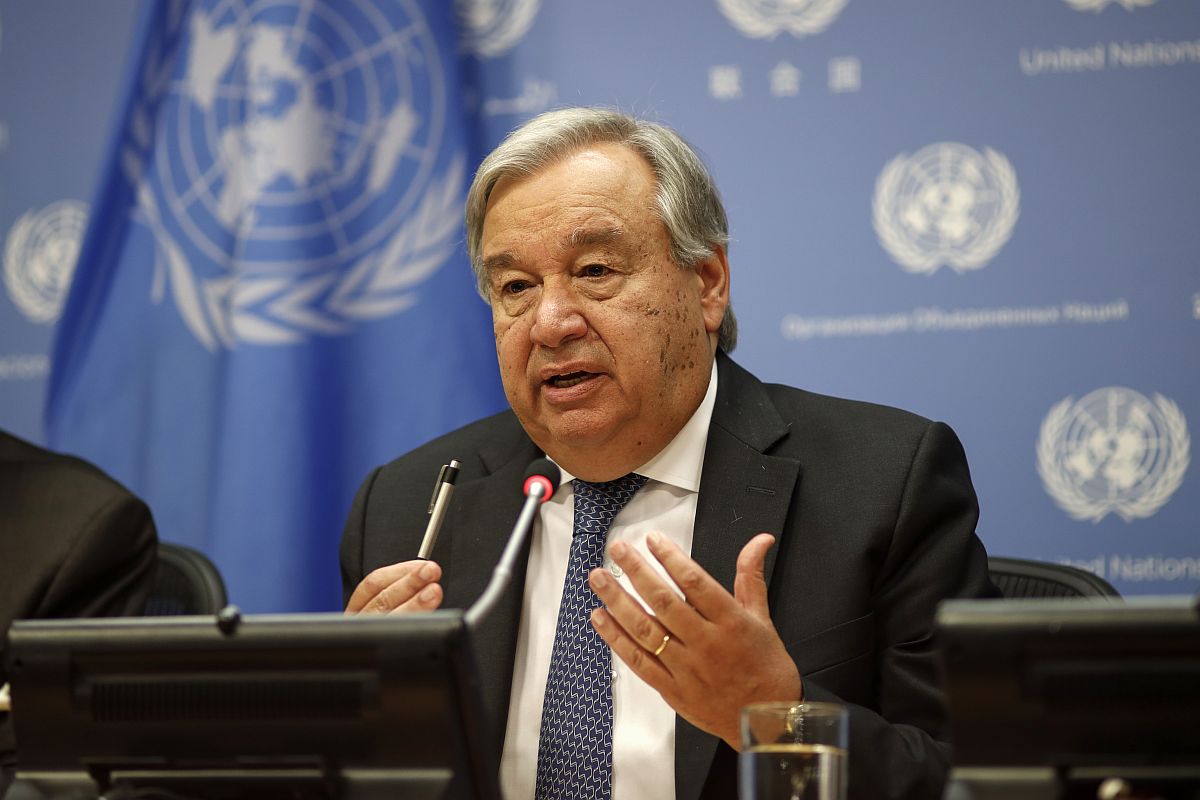Making UNGA more effective can’t be divorced from UNSC reforms: India
Making the General Assembly more effective cannot be divorced from the wider context of the reform of the UN, including the Security Council, according to India.
The UN Secretary-General’s concern comes amid alleged atrocities of police against the students of Jamia Millia Islamia University.

UN Secretary-General Antonio Guterres. (File Photo: IANS)
United Nations (UN) Secretary-General Antonio Guterres is concerned about the violence and the “alleged use of excessive force” in the protests against the Citizenship Amendment Act (CAA) in India, his spokesperson Stephane Dujarric said on Tuesday.
“We very much call for restraint and urge full respect for the rights of freedom of opinion and expression and peaceful assembly,” he said while answering a question about the protests at Jamia Millia Islamia in New Delhi.
On the CAA, he said that he would refer to the “very strong words” from Human Rights High Commissioner Michelle Bachelet.
Advertisement
The United Nations human rights body had on Friday expressed its concerns over India’s new Citizenship Act and termed the law “fundamentally discriminatory” in nature.
“We are concerned that India’s new Citizenship (Amendment) Act 2019 is fundamentally discriminatory in nature,” Jeremy Laurence, a spokesperson for UN Human Rights chief, Michele Bachelet, told reporters in Geneva.
The rights body further said that the amended law “appears to undermine the commitment to equality before the law enshrined in India’s Constitution”.
“The amended law would appear to undermine the commitment to equality before the law enshrined in India’s Constitution and India’s obligations under the International Covenant on Civil and Political Rights and the Convention for the Elimination of Racial Discrimination, to which Indian is a State party, which prohibit discrimination based on racial, ethnic or religious grounds,” the spokesperson said.
He added that while India’s broader naturalisation laws remain in place, amendments brought through the latest act “will have a discriminatory effect on people’s access to nationality”.
Meanwhile, the UN Secretary-General’s concern comes amid alleged atrocities of police against the students of Jamia Millia Islamia University.
The campus protests have gained massive support across the nation after Delhi Police tear-gassed students of Jamia on Sunday night without any permission from the campus authorities.
Following police action at Jamia Millia, protests also erupted at Aligarh Muslim University, Hyderabad’s Moulana Azad National Urdu University, Banaras Hindu University and Lucknow’s Nadwa College.
Earlier, the United Nations had said that it was closely analysing the possible consequences of India’s amended Citizenship Act while insisting that the world body has its basic principles, including those enshrined in the Universal Declaration of Human Rights, and expect those to be upheld.
“We’re aware that the lower and upper houses of the Indian Parliament have passed the Citizenship Amendment Bill, and we’re also aware of the concerns that have been publicly expressed. The United Nations is closely analysing the possible consequences of the law,” Farhan Haq, Deputy Spokesman for the UN chief Antonio Guterres had said on Thursday.
According to the new law, members of Hindu, Sikh, Buddhist, Jain, Parsi and Christian communities, who have come from Pakistan, Bangladesh and Afghanistan, till December 31, 2014, facing religious persecution there, will not be treated as illegal immigrants but given Indian citizenship.
The Act says the refugees of the six communities will be given Indian citizenship after residing in India for five years, instead of earlier requirement of 11 years.
The proposed legislation was welcomed with violent protests across the northeast as locals and students hit the streets in thousands, burning tyres and wooden logs prompting the administration to impose curfew in Assam and suspend mobile internet services.
Advertisement